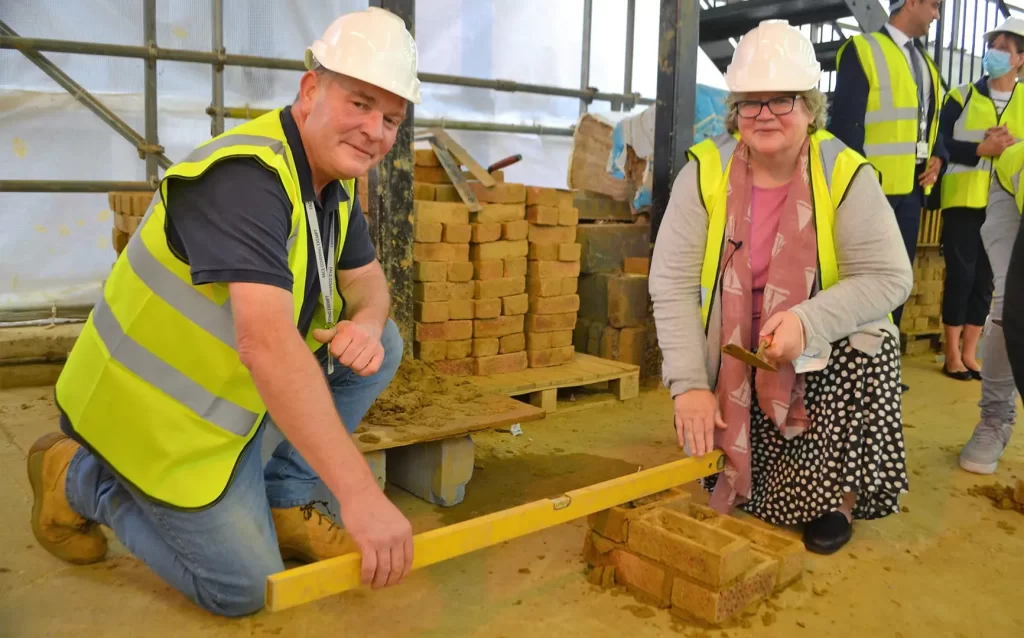More of us are looking to continue working from home as lockdown restrictions are eased. Jackie Chapman, Managing Director of Capital City College Training, explains how employers can support apprentices while remote working.

Not a day has gone by over the past year when someone hasn’t said “you’re on mute” or been caught off-guard by something in the background of a Zoom or Teams call. Remote working has become the new normal since the advent of the COVID-19 pandemic, and something we have all had to adapt to quickly. Now, as countries move out of lockdown and vaccinations are rolled out there has been an increased appetite to work from home.
A recent report in the Economist revealed just a fifth of employees would prefer to work in the office post COVID and around 30 per cent want to work a full week at home, while 42 per cent said they would look for a new job if asked to return to the office full time.
The change is startling compared to two years ago when remote working was seen as the exception rather than the norm, even among tech giants like Google.
The world has shown great resilience to adapt in such challenging times, indeed at Capital City College Group, we jumped to fully online learning in just two weeks.
Restrictions are easing and society is starting to open up again, but many workers and their employers want to keep working remotely. So what does this mean for apprentices and how can employers continue to deliver purposeful and effective training?
At Capital City College Training, the apprenticeship and training provider of CCCG, we are responsible for a quarter of completed apprenticeships in London so far this academic year.
Our apprentices work in a wide variety of roles in various sectors and the impact of COVID has been different for each of them. Employers need to be aware of their needs and that much of what apprentices learn, and what makes them valuable employees, is picked up on the job, something that is often hard to replicate remotely. At CCCT, we have worked with employers to meet this challenge head on and help them continue to provide high quality training and support as many employees continue to work from home.
For most practical apprenticeships like construction and hospitality, our apprentices have been able to continue with their learning theory but the lack of practical experience has made it extremely difficult for them to develop the consistent level of skill expected. This has resulted in some apprenticeships taking longer than normal to complete as they waited to be able to return back on site.
Those apprentices who are training in business support roles, such as administration, HR, procurement and management, have been able to continue to train with relative ease throughout the pandemic. However, in both cases apprentices that have struggled, say the biggest impact has been a lack of support from some employers in supporting their development, and home working has often resulted in them being more restricted in their work. This is frequently where their line managers have also been impacted by changing workloads and health.
CCCT has provided regular online workshops with apprentices to help them with their training and to support their mental health and well-being, and it is important that employers also show this commitment and duty of care.
The majority of our apprentices say they would prefer to be physically at work one or two days a week, so they benefit from working with others in their role or other areas of the business, and this is something at CCCT we would strongly encourage. From September it is our intention to have group inductions on site to help apprentices connect with other apprentices and staff while continuing to provide online workshops and support in the non-practical apprenticeships,
With more of us looking to work from home, it is vital employers do everything they can to make sure apprentices continue to get the best possible training, support and experience that will give them the skills for their chosen industry as the country breaks free from the pandemic.
Here are my top three tips on how employers can best support apprentices while working remotely:
One-to-ones
Set aside time each week to talk to the apprentice, instruct them in their tasks and appraise their work. Encourage a two-way dialogue so they feel fully involved, want to perform well and have the opportunity to ask questions or raise any concerns.
Mental health
Remote working has affected many people’s mental health. Look for signs such as lack of enthusiasm, demotivation, negativity and taking time off. Set aside time with the apprentice in addition to work one-to-ones. A quick chat asking how they are can be very effective.
Broaden horizons
Introduce them to different areas of the business, encourage collaboration and arrange work with other employees to broaden their skills and knowledge, keep them motivated and give them a much better and more enriched experience.
And finally, don’t forget to ask your college or training provider for support.







